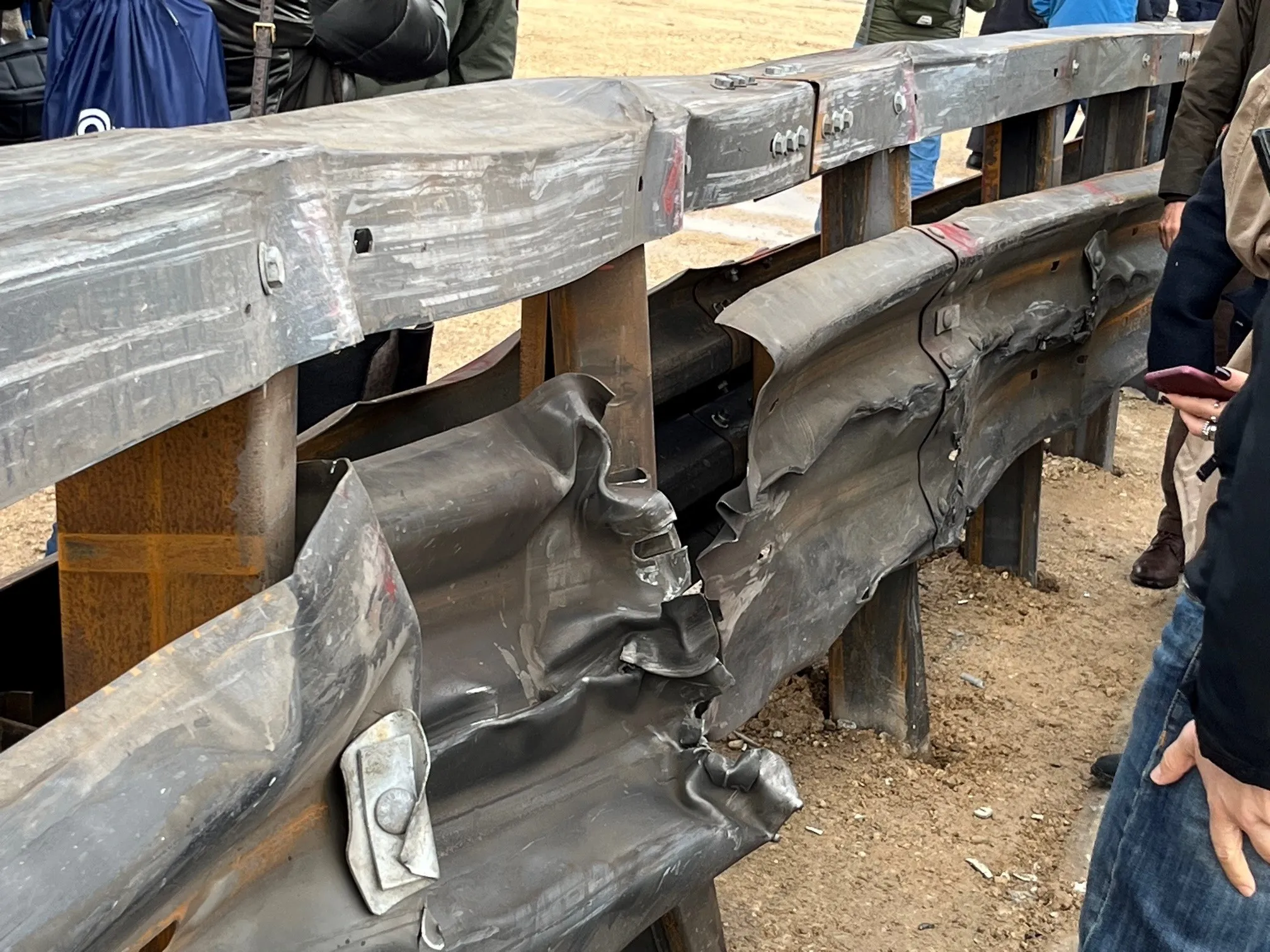Driver First Assist (DFA) has completed a day of novel road safety training in conjunction with Devon County Council (DCC) in southwest England.
With over five lives lost every day on UK roads, DCC was keen to bolster its road safety strategy with help from DFA, an initiative which trains professional drivers to deal with road traffic collisions (RTCs) in a bid to save lives.
DFA course participants learn a variety of information, from how to manage the scene of an RTC prior to the emergency services arr
February 26, 2014
Read time: 3 mins
Driver First Assist (DFA) has completed a day of novel road safety training in conjunction with Devon County Council (DCC) in southwest England.
With over five lives lost every day on UK roads, DCC was keen to bolster its road safety strategy with help from DFA, an initiative which trains professional drivers to deal with road traffic collisions (RTCs) in a bid to save lives.
DFA course participants learn a variety of information, from how to manage the scene of an RTC prior to the emergency services arriving, to learning basic first aid which gives drivers the skills they need to carry out life-saving first-at-scene treatment.
Nigel Flower, DCC’s safer travel strategic officer who organised the course on behalf of the council, said, "We were really keen to learn more about the structure of the course. DFA's aim is to try and reduce the number of people killed in RTCs which fits in with our road safety strategy.
Alongside a number of the council's own staff, selected members of the local police and fire service, NHS workers and employees of businesses based in the surrounding area were also invited to participate. "With a very mixed crowd in terms of experience, we were impressed with how well the instructors were able to cater for all abilities," continued Flower. "The two instructors were professional and very knowledgeable and everyone found the day extremely useful.”
Flower described DFA as a “fantastic initiative” which really could make the “vital difference to saving lives on our roads”. He said he was keen to establish local trainers to roll the course out across Devon.
All DFA instructors are acting or retired emergency services personnel, and the DFA course itself is a condensed version of the same course created and taken by members of the fire, ambulance and police services.
DFA founder David Higginbottom said, "We are confident that the DFA approach will help drive down deaths on the UK road network, but it is the support of organisations such as Devon County Council that is essential for raising awareness. To ensure this initiative makes a real difference to road safety we need many more fleets and drivers to sign up for the training, and we look forward to developing the work we've already started with Nigel and the team."
With over five lives lost every day on UK roads, DCC was keen to bolster its road safety strategy with help from DFA, an initiative which trains professional drivers to deal with road traffic collisions (RTCs) in a bid to save lives.
DFA course participants learn a variety of information, from how to manage the scene of an RTC prior to the emergency services arriving, to learning basic first aid which gives drivers the skills they need to carry out life-saving first-at-scene treatment.
Nigel Flower, DCC’s safer travel strategic officer who organised the course on behalf of the council, said, "We were really keen to learn more about the structure of the course. DFA's aim is to try and reduce the number of people killed in RTCs which fits in with our road safety strategy.
Alongside a number of the council's own staff, selected members of the local police and fire service, NHS workers and employees of businesses based in the surrounding area were also invited to participate. "With a very mixed crowd in terms of experience, we were impressed with how well the instructors were able to cater for all abilities," continued Flower. "The two instructors were professional and very knowledgeable and everyone found the day extremely useful.”
Flower described DFA as a “fantastic initiative” which really could make the “vital difference to saving lives on our roads”. He said he was keen to establish local trainers to roll the course out across Devon.
All DFA instructors are acting or retired emergency services personnel, and the DFA course itself is a condensed version of the same course created and taken by members of the fire, ambulance and police services.
DFA founder David Higginbottom said, "We are confident that the DFA approach will help drive down deaths on the UK road network, but it is the support of organisations such as Devon County Council that is essential for raising awareness. To ensure this initiative makes a real difference to road safety we need many more fleets and drivers to sign up for the training, and we look forward to developing the work we've already started with Nigel and the team."






